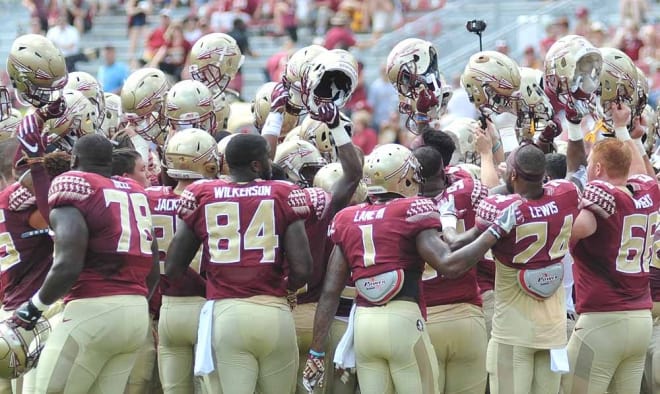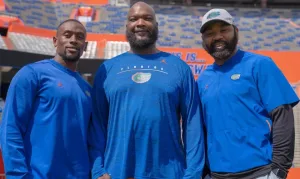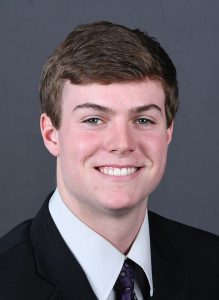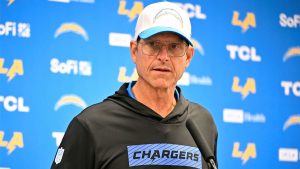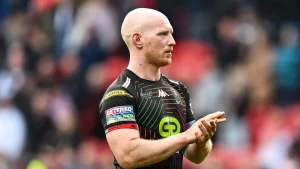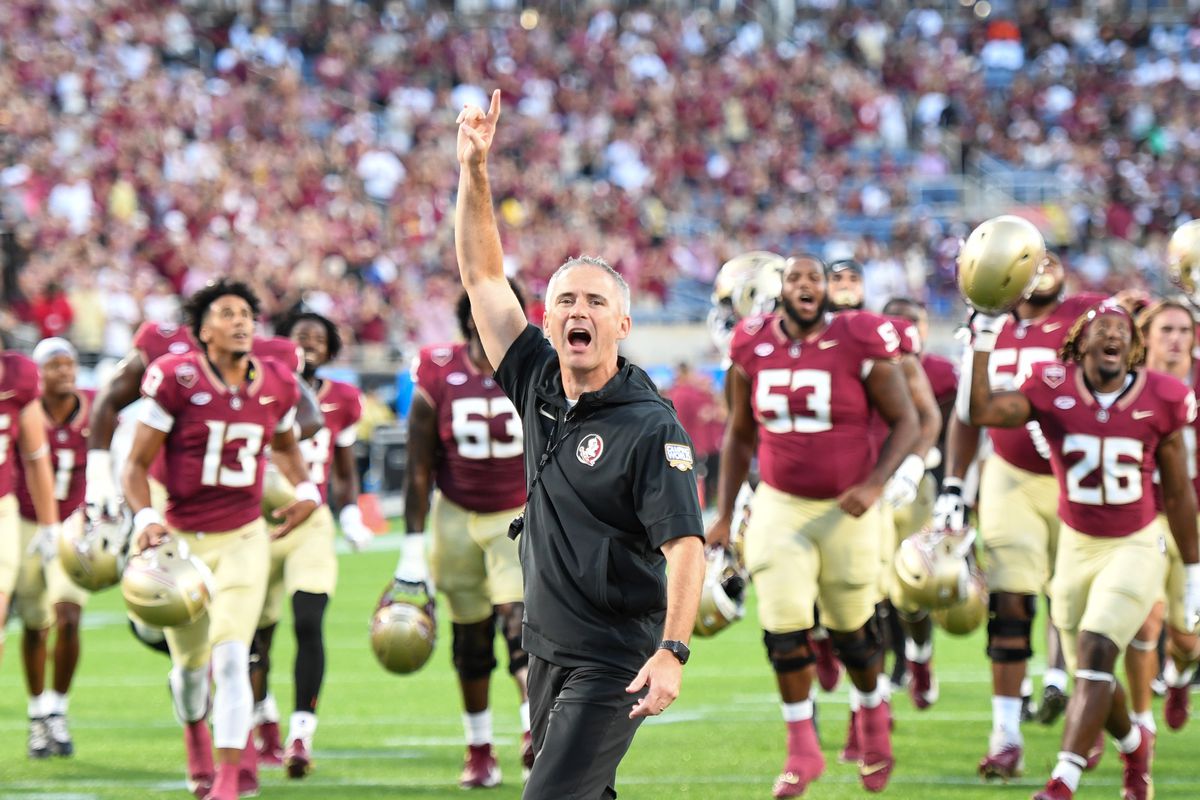
<div id=’hbagency_space_109681′></div>
The Florida State football program is penalized by the NCAA for recruiting infractions linked to NIL.
For NIL-related recruiting infractions, the NCAA Committee on Infractions stated on Thursday that fines had been imposed against the Florida State football team, an assistant coach, one of its collectives, and a supporter.
According to the NCAA, in the spring of 2022, the assistant coach drove a transfer prospect to meet with a supporter by facilitating their unlawful communication. The booster gave the potential student a NIL opportunity with the Florida State and urged him to enroll during the meeting.
combined income of almost $15,000 a month for his first academic year. The prospect went back to his school without making any agreements with the booster or receiving any payment in connection with it.
The player is former Georgia offensive tackle Amarius Mims, who recently declared he was forgoing the remainder of his college eligibility to enter the NFL Draft following the Bulldogs’ 63-3 victory over the Seminoles in the Orange Bowl. This information was confirmed to The Athletic by a source briefed on the investigation. Yahoo! and 247Sports both named the FSU group as Rising Spear. Mike Norvell, the head coach of the Seminoles, was neither mentioned or punished in the findings.
During the course of the inquiry, the school and law enforcement personnel came to the conclusion that the assistant coach had also broken the norms of unethical conduct by willfully giving false or misleading information concerning the infractions.
FSU was put on two years of probation, with five scholarships being reduced during that time, and fined $5,000 plus one percent of their football budget. The assistant received a two-year show-cause order that included a ban from off-campus recruiting for the fall of 2023, a suspension for the first three games of the 2024 season, and a two-week communication restriction.
In addition to sanctions relating to cutbacks in official paid visits and in-person recruiting days, FSU must also distance itself from the booster for three years and from the collective for one year.
“We are pleased to reach closure to this situation and view this as another step in strengthening our culture of compliance at Florida State University,” said FSU athletic director Michael Alford. We take compliance very seriously, and we have demonstrated that commitment by working fully with the NCAA in this case. We are still dedicated to abiding by all NCAA regulations, even if it means disassociating the booster from the collective.
Is the NCAA able to regulate group behavior?
It’s obvious that the NCAA intended for this to be a point. Though, as we all know, the process runs very slowly, leaders have been stating for almost a year that the NCAA’s enforcement staff was working on NIL/recruiting inducement investigations. The purpose of this negotiated resolution, along with the booster and collective disassociation penalties that followed, is to serve as a warning to collectives about the realities of operating within NCAA regulations. Specifically, they cannot meet with potential players or sign them to contracts before they enroll. The NCAA is attempting to control a practice that is evidently occurring across the nation: interactions between players through the transfer portal and potentially influential groups
landing locations. We’ll observe if it makes a difference.It has an effect.
